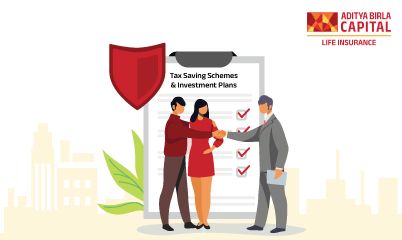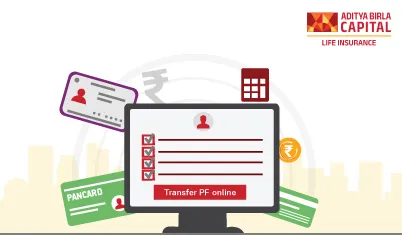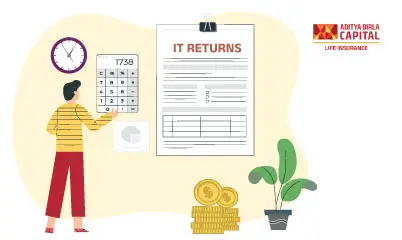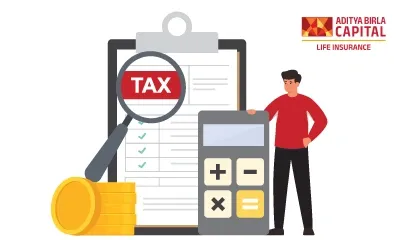A gratuity is a money given in one single sum to an employee by their employer when they retire or leave the company. Many companies will provide a retirement benefit if the employee satisfies the requirement of consistently working for at least five years with the firm.
The Payment of Gratuity Act of 1972 established specific guidelines and requirements for gratuities in India. Many workers often ask how to figure out how much gratuity they should be getting. There are various methods to figure out how much to give out, but using an online gratuity calculator is the simplest.
Here, we'll go through the idea of a gratuity calculator, the requirements for receiving gratuities, and other crucial details.
What is a Gratuity?
Gratuity is a one-time payment made by the employer to an employee. In appreciation for their services, the corporation rewards them. The purpose of gratuities is to provide workers access to retirement benefits. The Payment of Gratuity Act of 1972 governs gratuity and payment methods.
An employee must meet specific requirements to qualify for gratuity payments under this Act. The worker must have been employed by the firm consistently for at least five years. The employee is not permitted to work for any other full-time employment. The employee is entitled to a gratuity even before five years have passed in the event of death or incapacity.
The gratuity cannot exceed ten lakhs Indian rupees. If there is any surplus, it is ex-gratia. Ex-gratia is a gratuity made voluntarily and is not required by law. The number of months of employment is essential for determining the gratuity. If a person worked for more than six months during their final year of employment, the number is rounded to the following.
For instance, if a worker puts in 15 years and seven months of labour, their years of service will total 16 years. The number of years of service will be 15 years if the employee only works for 15 years and five months.
The 1972 Payment of Gratuity Act lays forth guidelines for calculating gratuities. There are two types of workers by these regulations—specifically, workers whom the Act protects and those who are not. The Act also specifies requirements for organisations that must comply to be covered by the Act.
Eligibility for Gratuity in Private Company
If you are eligible for gratuity, that should be your priority. There are primarily two categories of work: those for which Gratuity is required and those for which it is not. Generally, gratuities are available to all paid workers who provide services in exchange for prizes. This includes bellhops, taxi drivers, bussers, servers, bartenders, and other comparable jobs.
There are, however, certain exceptions. You are immediately qualified for gratuity if you work in one of these professions. Many businesses, nevertheless, choose to make this contribution optional. They can opt to give you no payment or only a token sum.
You must ask your employer whether they wish to give you a gratuity if you work in a position where it is optional. Your employer cannot compel you to accept Gratuity if they do not want to.
The prerequisites for obtaining a gratuity are as follows:
- Minimum wage legislation applies to your employer.
- More than 15 people work at your company.
- You could be eligible for superannuation.
- You become qualified for retirement at the age of sixty.
- A continuous period of five or seven years of working has ended.
- If you pass away, your family, dependents, or designated beneficiary will receive a gratuity.
- In the case of disease or impairment that is chronic
- You have access to health insurance via your employment.
- You have no legal rights to take legal action against your employer for unpaid pay if there is no gratuity. There is no other option than to sue them.
What Takes Place When You Quit Your Job
When you quit working, you stop being eligible for gratuities. Whether you left on your own or were dismissed doesn't matter. Your company is no longer required to provide a Gratuity once you quit your position.
How are Gratuities Calculated in the Private Sector?
The following formula should be used to determine gratuities:
The gratuity is calculated as follows: AB15/26 were,
- In this illustration, A stands for (the number of years working for a company)
- B stands for "Basic Pay + Dearness Allowance" (last drawn salary).
- 26 is the number of days a month, and 15 is the earnings for 15 days.
- The base wage, dearness allowance, and sales commissions are all included in the latest received salary.
- The highest gratuity is 20 lakh rupees in the event of retirement. Death Gratuities are provided according to the duration of service, with a 20-lakh rupee benefit cap. The gratuity due in the event of death is determined using the number of work years, such as when used Under one year, the Basic Pay rate is doubled.
- The salary would be 6x the base wage for work of one year or more but less than five years.
- If you work for a company for at least five years but less than eleven, your base salary will be 12 times as much.
- If you've worked for an employer for at least 11 years, but less than 20 years, you'll earn 20 times your base salary.
- Half of your emoluments (pay), up to a maximum of 33 times your payments, for each completed six-month term of service of 20 years or more.
For example, if Mr Hemant worked at Multiplex Firm for ten years and was paid a last-drawn pay of 30,000 rupees (Basic + Dearness Allowance), his gratuity would be 10 x 30,000 x 15/26 = 1,73,076. (Gratuity depends on the number of years of employment and the most recent pay received.)
Using a Gratuity Calculator
To calculate the gratuity amount, the user may utilise the gratuity calculator available online in India. The advantages of using the calculators are as follows:
- Calculating the appropriate gratuity amount.
- The calculator is free, and the results come quickly.
- Online gratuity calculators save time spent on calculations by automating them.
- The calculator is simple to use from anywhere.
- It supports long-term financial planning. Making wise investments is crucial rather than storing the money in a savings account. Returns on savings accounts do not exceed inflation. As a result, returns are negative. As a consequence, to make significant earnings, investors must invest their gratuity money.
Rules of Gratuity
The Payment of Gratuity Act of 1972 allows employers to give up their gratuity payments. The person has completed at least five years of employment with the organisation. There are several gratuity regulations. Let's examine each of the gratuity regulations individually.
-
The threshold for the maximum gratuity amount has been lifted from the previous cap of Rs. 10 lakhs to Rs. 20 lakhs in the most recent publication of the Government of India's interim budget for the year 2019. The PSU workers and those not protected by the Payment of Gratuity Act will benefit from this regulation, which will take effect on March 29, 2018.
-
Only for government workers is the maximum limit for gratuity raised; for non-government employees, the law remains the same, i.e., the gratuity sum can never exceed Rs. 10 lakhs. Ex-gratia is the term for any gratuity overage.
-
If there are more than six months in the last month of a person's employment year, the number is rounded to the next. A person would get the gratuity of 16 years, for instance, if their service period were 15 years and seven months. However, if it ends up being 15 years and four months, the employee will get a 15-year gratuity.
Tax Regulations for Calculating Gratuities
After calculating the gratuity, it is time to comprehend the gratuity taxes regulations. The kind of employment directly affects how gratuities are taxed. Three broad categories may be quickly used to group the workers:
1. Government Employees:
Any employee of the government is qualified to receive a tax-free gratuity. Regardless of whether they work for the federal government, a state government, or a municipal authority, all dividends received by government employees are free from income tax.
2. Employees Covered by the Payment of Gratuity Act:
Employees whose employers fall within the purview of the Payment of Gratuity Act will not be subject to income tax on the past 15 days' worth of income.
3. Employees Not Covered by the 1972 Gratuity Payment Act:
The following sums will be excluded from income tax for workers whose employers are not covered under the Payment of Gratuity Act of 1972:
- 10 Lakhs
- The amount of the actual gratuity received
- After one year of service with the company, the employee will get a salary of one-half a month.
Where Can the Received Lump Sum Gratuity be Invested?
One may put their lump sum gratuity money into the following investing or savings programs.
1. Senior Citizens Saving Schemes (SCSS)
Safe retirement investing programs include Senior Citizens Saving Schemes. One of the post office savings plans is it. Section 80C of the Income Tax Act allows investments up to INR 1.5 lakh to be tax-exempt. Saving taxes is possible with investments in SCSS plans.
2. Fixed Deposits
For many years, the most significant savings alternatives for Indians have been fixed deposits. The current fixed-deposit interest rate is between 5% and 7.5%. Investors may also calculate returns using any of the online FD calculators.
3. Debt funds
Debt mutual funds invest in various assets, including corporate bonds, government bonds, and other types of government securities, as well as money market instruments. The holding term for investments affects the capital gain tax of debt funds.
Investors' taxable income is increased when short-term capital gains tax is applied to debt funds held for less than three years. Long-Term Capital Gains Tax, however, only applies to assets that investors keep for more than three years. These profits are also subject to indexation-advantaged 20% taxation.
Conclusion
Those who are scheduled to get gratuities may use a gratuity calculator to predict the amount they will get and, in turn, make long-term financial choices for wealth development and recurring investment income. Investors who are expecting a large gratuity must carefully consider their investment alternatives so that they may generate substantial profits down the road.












